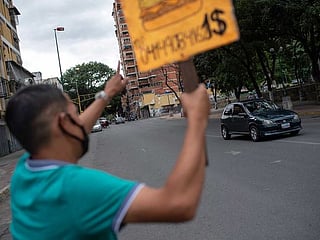'Physical damages' from Beirut blast could total $4.6 billion
Economic activity lost as a result of blast alone adds another $3b plus

Also In This Package
Beirut: The blast that devastated parts of Beirut this month caused between $3.8 billion and $4.6 billion in physical damage and the country will need international aid and private investment to recover, according to an initial assessment led by the World Bank.
More than 180 people were killed and thousands injured when a vast consignment of explosive material detonated at Beirut's port on August 4, ripping through central neighborhoods as ceilings collapsed and windows shattered.
In addition to the damage caused to homes, hospitals, schools, and streets, the blast forced many businesses to close, contributing to a loss of economic activity estimated at between $2.9 billion and $3.5 billion. Housing, transport and cultural assets are among the sectors worst affected, the World Bank said following an assessment carried out with the UN, EU and several Lebanese bodies.
Poverty spread
"The disaster will not only exacerbate the contraction in economic activity, but also worsen poverty rates, which were already at 45 per cent of the population just prior to the explosion," World Bank said in a statement Monday. "Implementation of a credible reform agenda will be key to accessing international development assistance and to unlock external and private sector sources of financing."
Even before the explosion, Lebanon was facing its worst political and economic crisis in decades but had struggled to secure international assistance because politicians repeatedly failed to agree on fiscal reforms and anti-corruption measures required by lenders.
The government resigned in the aftermath of the blast and parliamentary deliberations to name a new prime minister began Monday. Lebanon's ambassador to Germany, Mustapha Adib, has been widely tipped as front-runner after winning the backing of key political blocs.









